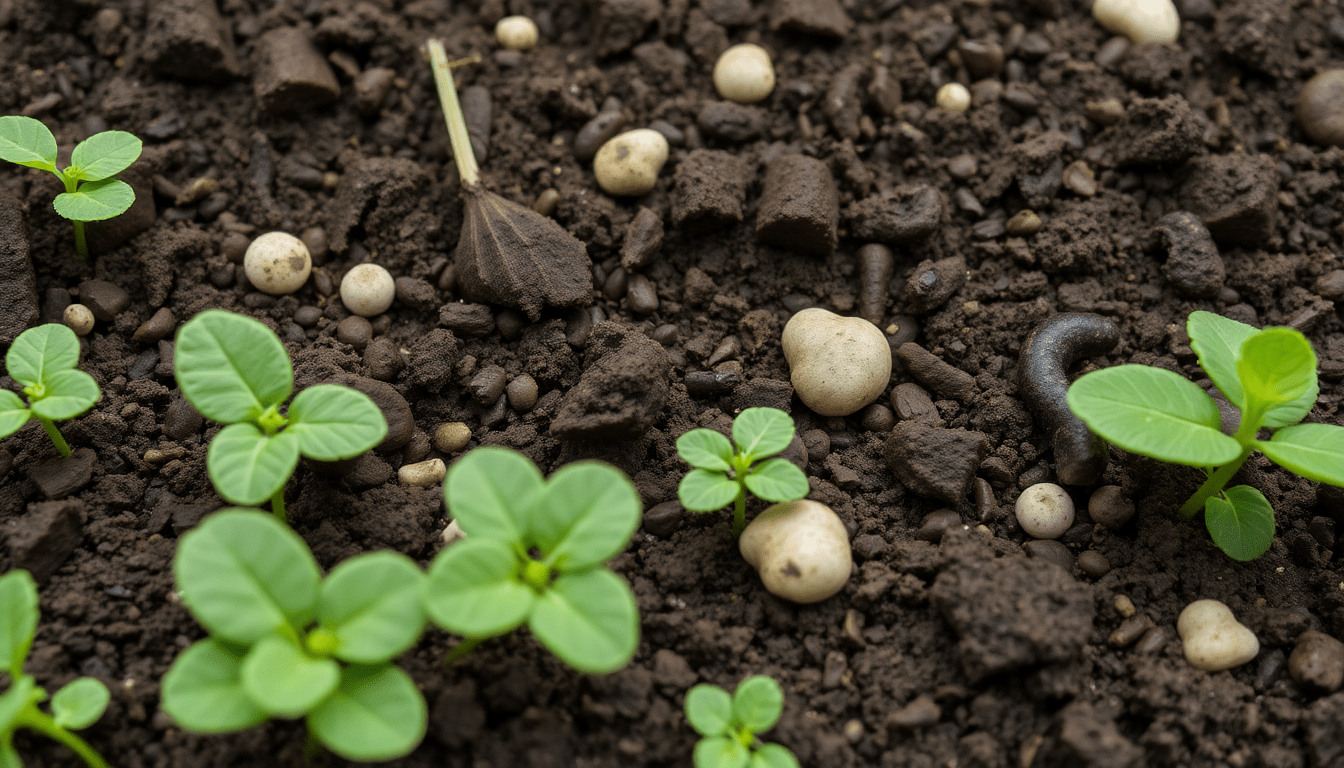
How Agricultural Soil Management Impacts Gut Microbiome and Health | InnerBuddies
Farm Practices, Soil Microbial Loss, and Gut Health Decline: An Environmental Perspective
Introduction
Farm practices shape our environment, influencing the delicate balance of soil health and the human gut microbiome. The way we manage soil affects not only crop growth but also the microbes living in our bodies. Understanding the connection between agricultural soil management gut microbiome interactions is key to improving both environmental and personal health.
Understanding Agricultural Soil Management and the Gut Microbiome
Agricultural soil management refers to how farmers care for the land to optimize crop production. This includes tilling, fertilizing, pesticide use, and crop rotation. These actions impact the diversity and vitality of soil microbes.
Soil microbes play a vital role in breaking down organic matter, cycling nutrients, and supporting plant growth. More importantly, these soil microbes influence the composition of the gut microbiome when we consume plants grown in healthy soil. A rich soil microbial community can enhance the diversity of bacteria in our own gut, supporting digestion, immunity, and overall health.
The Impact of Pesticides on Rhizosphere Microbes
The rhizosphere is the narrow region of soil surrounding plant roots where microbes flourish. These rhizosphere microbes help plants absorb nutrients and defend against diseases. However, pesticide impact on rhizosphere microbes is a growing concern.
Pesticides, while targeting pests, also harm beneficial microbes in the rhizosphere. This disruption reduces microbial diversity and weakens soil health. Over time, the loss of these microbes can degrade soil quality and limit nutrient uptake by plants. When crops suffer reduced nutrient content, the effects reverberate through the food chain, ultimately affecting human gut health.
Soil Microbial Loss Effects on the Environment and Health
Soil microbial loss results from overuse of chemicals, intensive farming, and loss of organic matter. This decline weakens the soil's ability to support plant life. Fertility declines, and plants don’t receive the full array of nutrients they need to thrive.
This has a twofold impact. First, poor soil health leads to weaker crops. Second, nutrient-poor food affects the diversity of bacteria in our gut. When our diet lacks micronutrients and beneficial compounds, our gut microbiome suffers, which may lead to digestive issues, inflammation, and a decline in well-being.
Soil Management and Dietary Health
The quality of soil directly shapes the nutrient content of the food we eat. Crops grown in microbe-rich soil contain more vitamins, minerals, and phytochemicals important for human health. Good soil management ensures plants remain nutrient-dense, supporting better diets.
Soil management and dietary health are linked through this chain: healthy soil leads to nutrient-rich food, which supports a diverse gut microbiome. This diversity is critical for digestion, vitamin production, and immune support. Incorporating a diet from well-managed soils helps maintain a strong gut ecosystem.
Sustainable Farming Practices to Protect Soil and Gut Health
Sustainable farming practices focus on nurturing soil microbes and reducing harmful inputs. Techniques like crop rotation, cover cropping, organic fertilizers, and reduced pesticide use rebuild soil microbial communities.
These practices boost soil health by improving structure and nutrient cycling. They protect rhizosphere microbes essential to plants and, ultimately, to our gut microbiome. Farms that use sustainable methods produce food that can help maintain or even restore gut health naturally.
By supporting sustainable farming practices, consumers play a role in protecting soil ecosystems and their own well-being.
InnerBuddies' Role in Gut Health Awareness
InnerBuddies offers a Microbiome Test that helps you discover your unique gut microbiome. By understanding your personal gut bacteria, you can receive advice tailored to your wellness needs.
This personalized approach complements environmental efforts. While farmers work to improve soil health, InnerBuddies helps individuals monitor and boost their gut health. Together, they create a stronger link from soil to gut health.
Taking the first step with InnerBuddies allows you to make informed dietary choices and support sustainable agriculture, contributing to better gut health and overall well-being.
Conclusion
Farm practices, soil microbial loss effects, and gut health decline are all connected through a complex environmental web. Agricultural soil management gut microbiome interactions remind us that protecting soil life is essential for healthy food and healthy people.
Supporting sustainable farming practices protects vital microbes from farm to our gut. Monitoring your gut health through tools like InnerBuddies empowers you on this journey.
Together, we can nurture soil and gut microbes alike, paving the way for healthier futures for both our planet and ourselves.

